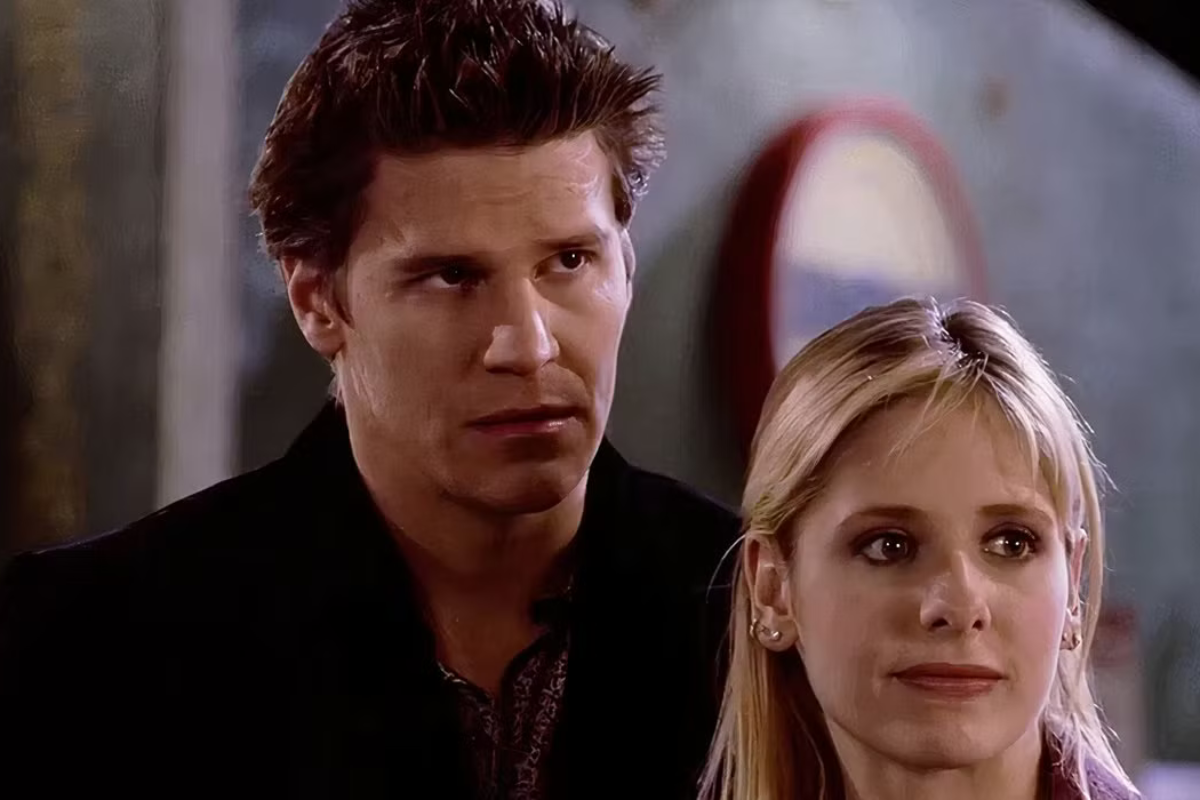Meet the Reader: Contesting Redux
It’s an unending debate: Are contests worth your time, talent, and dollars? Here’s Ray Morton’s take, along with a list of some of the more longstanding, reputable competitions out there.
A few weeks back, a reader called Film Shark asked for information about screenwriting contests. Last year I wrote an article for the print edition of Script called “Contesting,” which discussed the world of screenwriting contests and provided information about some of the better-known ones. To help out Film Shark and other interested readers, I’ve decided to present an edited version of the article below. I hope you find it helpful.
“Contesting”
There are many paths to a career as a successful professional screenwriter. For many aspirants, one excellent route is to participate in screenwriting competitions.
To begin with, screenplay contests can provide entrants with the opportunity to make some money -- most offer some sort of cash prize that can range from as little as $100 to as much as $30,000 or more.
As nice as the money can be, many competitions offer something even more valuable – industry access. One of the top prizes in many screenplay contests is the opportunity to meet and have your material read by a high-profile producer, agent, or manager. Now obviously, this doesn’t guarantee that your script is going to sell, but it does provide you with a very solid foot in the door. Even if the event that you’ve entered doesn’t offer a direct introduction, many contests use well-known filmmakers and representatives as judges, so your piece can come to their attention in that way as well. Also, most reps and development executives track the scripts and writers that win or place in the better-known tournaments and may reach out to you if your work sounds interesting to them. Finally, a number of contests offer opportunities for publicity and exposure – profiles in screenwriting magazines and event newsletters, interviews and logline postings on event websites, inclusion in email blasts and press releases, etc. -- all of which can help facilitate connections as well.
Many script showdowns offer feedback as part of their awards package – notes or assessments by the judges or even full coverage by a professional script analyst or services that can help entrants enhance their material’s creative and commercial potential. Other prizes offered include passes to film festivals, screenwriting conventions, and pitch events; subscriptions to scriptwriting magazines; copies of screenplay software; scholarships for classes, seminars, and programs; trophies, certificates, t-shirts and hats. The winners of certain competitions can sometimes even qualify for membership in the Writers Guild of America West’s Independent Writers Caucus.
There are dozens of contests out there, sponsored by many different types of organizations – the Academy of Motion Pictures Arts & Sciences; production companies, management outfits, and script coverage services; screenwriting-oriented publications and websites; universities; film festivals, conferences, and expositions; and even state film commissions. Entry fees usually range from $25-$75.
So, which ones should you enter? Ideally, you should participate in those that best suit your script and your goals. If you’ve written a feature-length spec and are looking to break into the mainstream film industry, then the Big Three – the Don & Gee Nichol Screenwriting Fellowship, the Big Break Contest, and the AAA Screenplay Contest – are pretty much a must. If T.V. is your aim, then it makes sense to enter a contest geared towards television scripts or that at least has a significant television component, such as the ABC Fellowship, Scriptapalooza, or AAA. There are also a number of contests that welcome short scripts if that is your bailiwick.
A word of warning – while a vast majority of screenwriting competitions are legitimate, professional, and deliver what they promise, there are a few dubious ones out there. Some of these shady contests simply try to milk entrants for as much money as possible by constantly extending entry deadlines in order to collect more fees; by charging a reasonable premium to enter, but then urging entrants to buy high-priced tickets to the black-tie awards gala in case they turn out to be finalists, which just about every entrant turns out to be; and by hinting that you stand a better chance of winning if you utilize expensive coverage services from one of the competitions’ script consulting affiliates. However, some more sinister tournaments try to wrangle control of your script by requiring you to sign an agreement (as part of your entry paperwork) that grants the sponsoring organization an option on the winning scripts for little or no money. Beware too of competitions that announce that the winning scripts will actually be made into movies. This sounds great until you realize that it’s usually just another way for the event sponsors to get a free option on your work while they look for financing that will allow them to attach themselves to the project as producers. Most of these films never actually get made and those that do are usually shot on extremely low budgets, turn out terribly, and are never released, which totally ruins the commercial value of your script. Red flags of suspicious contests: They’re not usually sponsored by a legitimate organization, but instead by producers with no credits, managers with no clients, screenwriting “institutes” with no classes, teachers, or students, etc. Also, the details are usually vague – these competitions promise prominent judges and intros to big-name producers or reps but fail to identify them or promise to bring your work to the attention of the industry, but fail to specify the method (and which often turns out to be nothing more than an email blast, which is something you can just as easily do for yourself without having to spring for an entry fee).
Before you enter a contest, read all of the rules -- each tournament has its own specific regulations and it is important that you comply with each of them if for no other reason than to not give the contest a reason to disqualify you before the first read. And, of course, be sure to read all of the fine print so that you can be absolutely certain what rights you are granting before you sign on the dotted line.
Present your script in a professional manner: make sure it is correctly formatted (including proper font, type size, and margin width) and that all screenplay terminology and technique is properly employed; make sure the title page contains all requested information; since most contests no longer accept paper submissions, make sure you present your script using the correct electronic file format (usually PDF or Final Draft); and finally, please observe page-length limitations.
Pay careful attention to submission deadlines, both so that you make sure you get your script in on time and so that you give yourself plenty of time to hone it to perfection before you send it in.
If you do win, it behooves you to make the most of your victory. Incorporate your accomplishment into all of your promotional materials: into your cover and query letters, logline postings, cover pages, CVs, business cards, on your social networking and personal websites, etc. Take advantage of all the prizes awarded to you: Submit your winning script to every producer, agent, and manager that asks to see it, take every meeting that is offered to you, and pitch, pitch, pitch at every opportunity. If you receive feedback or coverage, incorporate the suggestions into your next rewrite in order to improve your script and increase your chances for whatever comes next.
Of course, the ultimate goal in screenwriting is not to win contests, but to get your work produced. However, participating in screenplay competitions can certainly be an excellent first step towards achieving that goal. Good luck!
***
Here’s some contest info for the “Big Three.” Check each contest’s website for current entry deadlines and fees:
The Don & Gee Nicholl Fellowships in Screenwriting
Sponsored by the Academy of Motion Picture Arts & Sciences
Qualifications
Screenwriters who have not earned more than $5,000 writing fictional work for film or television. Entry scripts must be the original work of one writer, or the collaborative work of two writers, and must be written originally in English. Adaptations and translated scripts are not eligible.
Prizes
Up to five $30,000 fellowships are awarded each year to promising new screenwriters.
Entry Requirements
Original feature film screenplay approximately 90 to 120 pages in length (there is no page limit) in PDF format only; fill out the online application form; entrants may submit their script online via digital upload only. Printed scripts are no longer accepted.
Contact
Nicholl Fellowships
1313 Vine Street
Hollywood, California 90028-8107
nicholl@oscars.org
(310) 247-3010
Big Break™
Sponsored by Final Draft, Inc.
Qualifications
The Big Break Contest is open to any individual who is 18 years of age or older at the date of entry and has access to the Internet. Screenplays written by up to two people may be entered in the contest. Entrants may submit multiple entries.Optioned screenplays are not eligible.
Prizes
- First Place: $15,000 total cash plus finalist prizes, airfare to Los Angeles, and 3-night hotel stay (unless winner resides in or around Los Angeles), lunch with execs, extended ScriptXpert coverage, plus finalist prizes.
- Second Place: $4,000 total cash plus finalist prizes, plus all of the same prizes as First Place.
- Third Place: $2,000 total cash plus finalist prizes, plus all of the same prizes as First.
- Fourth Place: $500 total cash plus basic ScriptXpert coverage and finalist prizes.
- Fifth Place: $250 total cash plus basic ScriptXpert coverage and finalist prizes.
- Finalist Prizes: Final Draft software, One-year Script magazine subscription, One-year IMDbPro, One-year Moviemaker magazine subscription, Gotham Writers’ Workshop 10-week class, StoryO from Jungle Software, One-year subscription to BOSI's Meeting with the Masters Series, Pitch Perfect video pitching from StoryLink.com, $50 gift certificate from The Writers Store, One-year Tier 1 subscription to Show Starter Scheduling & Budgeting Plus, Newmarket Press screenplay book, Free Big Break Contest entry for 2011
Entry Requirements
All submissions should consist of full-length screenplays (approximately 90 to 120 pages) in standard industry format for motion picture screenplays, written in English. Screenplays over 135 pages or under 80 pages will be disqualified. Online entries only -- no printed scripts will be accepted. Script must be submitted in Final Draft (.FDX, .FDR or .FDS) or .PDF format.
Contact
AAA
Sponsored by Creative Screenwriting Magazine
Qualifications
Writers of submitted scripts must not have earned more than $25,000 (in cash or other consideration) for writing services for film or television in the three years prior to the opening date of the contest. Furthermore writers must not have won a fellowship or writing contest that includes a “first look” clause in the three years prior to the opening date of the contest. Submitted screenplays must be the unproduced, unoptioned, and wholly original work of the writer(s). Submitted teleplays will adhere to the industry “spec script” practice of being a derivative work based on a pre-existing television series, but must contain original story and dialogue. Pilots for unproduced television shows or episodes of an unproduced series will not be accepted. Scripts by more than one writer are eligible. All writers of submitted scripts must be at least 18 years of age.
Prizes
- Grand Prize: $7,500 cash; script mailed to over 300 agents, managers, and development executives; free Gold Pass registration to the Screenwriting Expo; air fare up to $300 and lodging at the Screenwriting Expo headquarters hotel; five free Golden Pitch Festival pitch tickets; full set of Creative Screenwriting educational DVDs; free one-year subscription to Creative Screenwriting Magazine; Hollywoodbyphone subscription.
- Second Prize: $2,500 cash; script mailed to over 300 agents, managers, and development executives; free regular admission to Screenwriting Expo; one free ticket to Golden Pitch at Expo; Creative Screenwriting subscription.
- Third Prize: $1,000 cash; plus all Second Place prizes
- Top 10 Feature Screenplay Finalists: Synopsis and logline mailed to over 300 agents, managers, and development executives; free regular admission to Screenwriting Expo; Creative Screenwriting subscription; Hollywoodbyphone subscription.
- Feature Screenplay Semifinalists: Name and script name posted on AAA web site; free educational DVD on screenwriting; Creative Screenwriting subscription; Hollywoodbyphone subscription.
- Teleplay Prize Winners (Two Winners, Half-Hour and Full Hour): $500 cash each Winning script submitted to three companies of winner's choice from AAA list; name and script name posted on AAA web site; Creative Screenwriting subscription; free Educational DVD.
Entry Requirements
Online and hard-copy submissions accepted. Online submissions must be in either Movie Magic, Final Draft, or Adobe PDF format. Feature screenplays must be between 85 and 140 pages and in standard spec screenplay format, fastened with 2-3 brads with (optional) blank cardstock covers. Teleplays for hour-long series must be between 50-70 pages. Teleplays for half-hour shows must be between 25 and 55 pages.
Contact
AAA Screenplay Contest
c/o Creative Screenwriting
6404 Hollywood Blvd., Suite 415
Los Angeles, CA 90028
Contest Coordinator: Pasha McKenley -- aaacontest@creativescreenwriting.com
Other Notable Screenwriting Contests and Fellowships:
ABC Disney Fellowship
Action on Film
American Zoetrope Screenwriting Contest
Austin Film Festival
Nickelodeon Fellowship
Scriptapalooza
Script Pipeline
Script Shark Insider
Slamdance Screenplay Competition
Sundance Screenwriters Lab
Writers on the Storm
Ray Morton is a writer and script consultant. His many books, including A Quick Guide to Screenwriting, are available online and in bookstores. Morton analyzes screenplays for production companies, producers, and individual writers. He can be reached at ray@raymorton.com. Twitter: RayMorton1







